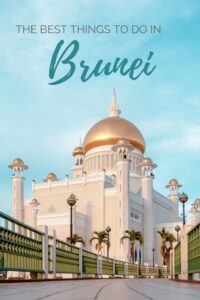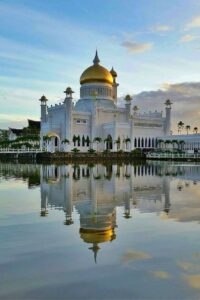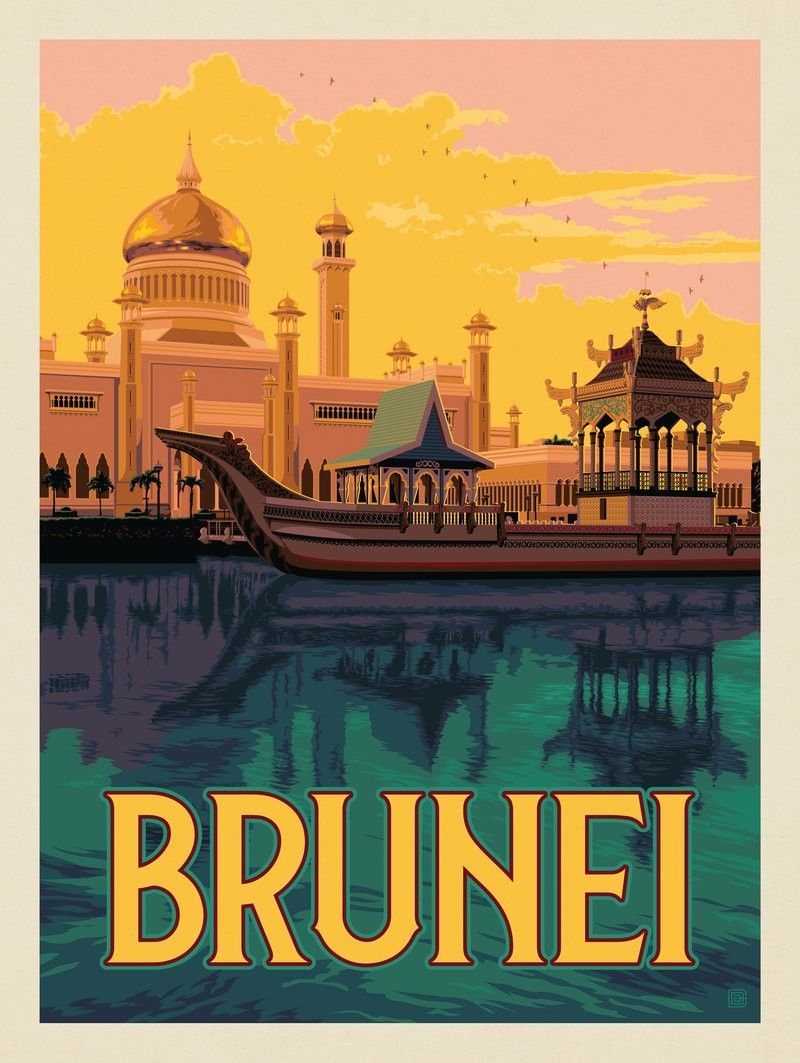Surprising Facts About Brunei That Reveal Its Hidden Wonders
Brunei, officially known as Nation of Brunei, the Abode of Peace, is a small yet incredibly rich country on the island of Borneo in Southeast Asia. Despite its small size, Brunei has a fascinating history, vibrant culture, and significant economic influence due to its oil and gas wealth. In this article, we explore Brunei’s history, facts, timeline, significance, daily life impact, FAQs, and its importance to society, all in a human-friendly, engaging style.
History of Brunei
Brunei has a long and fascinating history spanning centuries. Its strategic location along the northern coast of Borneo allowed it to flourish as a trading hub.
Early History
7th Century: Brunei emerged as a trading settlement influenced by Chinese, Indian, and Islamic merchants.
14th–16th Century: Brunei became a powerful Sultanate under Sultan Bolkiah, extending influence over Borneo and parts of the Philippines.
Colonial Era
16th–19th Century: European powers like Portugal, Spain, and the British arrived in Southeast Asia. Brunei gradually lost territory but maintained independence as a Sultanate.
1888: Brunei became a British protectorate, preserving its monarchy while Britain managed foreign affairs.
Modern Era
1959: Brunei adopted its first written constitution.
1984: Full independence from Britain was achieved, retaining Sultan Hassanal Bolkiah as head of state.

Facts About Brunei
Richest Country per Capita: Brunei’s wealth comes mainly from oil and gas exports.
Sultanate System: Brunei is one of the world’s few remaining absolute monarchies.
Religion: Islam is the official religion, and Sharia law influences daily life.
Population: Around 450,000 people, making it one of the smallest nations in Asia.
Biodiversity: Brunei has lush rainforests, rich in flora and fauna, with conservation efforts in place.
Education and Healthcare: Brunei provides free healthcare and education for citizens.
Language: Malay is the official language, but English is widely used.
Timeline of Brunei
7th Century: Brunei emerges as a trading settlement.
14th–16th Century: Golden age under Sultan Bolkiah.
16th–19th Century: European arrival and territorial decline.
1888: British protectorate established.
1959: Constitution introduced.
1984: Full independence and modern nation-building.
21st Century: Brunei invests in education, infrastructure, and sustainable development.
Culture and Significance
Brunei’s culture reflects Islamic traditions, Malay heritage, and a respect for monarchy. Daily life is influenced by religion, social hierarchy, and traditional values. Its significance includes:
Preserving Islamic traditions: Festivals like Hari Raya Aidilfitri and Islamic holidays are celebrated with devotion.
Sustainable development: Brunei focuses on conserving its natural rainforests and biodiversity.
Economic role: Brunei’s oil and gas wealth impacts global energy markets.

Daily Life Impacts
Physical and Social Life
Citizens enjoy free healthcare and education, contributing to a high quality of life.
Social structure is influenced by monarchy and religious values, promoting community cohesion.
Economic Impact
Employment and infrastructure are supported by oil wealth.
Government provides housing and welfare programs.
Cultural Practices
Daily prayers, traditional dress, and observance of Sharia law shape everyday life.
Community participation and respect for elders and leaders are valued.
Observance and Rituals
Religious observances: Daily prayers, Ramadan fasting, and Eid celebrations are central.
Royal events: Birthdays and anniversaries of the Sultan are national holidays.
Environmental observances: Efforts to protect forests and wildlife are promoted nationally.
Wishing and Benefits
Brunei’s values encourage wishing prosperity, peace, and health for its citizens:
“May Brunei continue to flourish with harmony, prosperity, and the wisdom of its people.”
Benefits of Brunei’s system include:
High standard of living and health
Cultural preservation and social stability
Environmental conservation and sustainable growth
FAQs About Brunei
Q1: Is Brunei safe for tourists?
A1: Yes, Brunei is considered very safe due to low crime rates and strict laws.
Q2: What is the best time to visit Brunei?
A2: Between February and April when weather is dry and festivals are celebrated.
Q3: Can foreigners work in Brunei?
A3: Yes, but work permits are required and priority is given to citizens.
Q4: Are there restrictions on alcohol?
A4: Yes, alcohol consumption is limited for Muslims; non-Muslims can purchase it with restrictions.
Q5: How does Brunei handle healthcare and education?
A5: Both are free for citizens, funded by the government’s oil and gas revenue.
Review Section
Visitors and Residents Experiences:
Emma, 32 (Tourist): “Brunei’s cleanliness, safety, and cultural richness impressed me. The mosques and rainforests are stunning.”
Hassan, 40 (Resident): “Living in Brunei feels secure and comfortable. Free healthcare and education make life easy for families.”
Lina, 29 (Expat Teacher): “The respect for tradition and community values is remarkable. It’s a calm, stable environment to live in.”
Rating: ★★★★☆ (4.5/5)
Conclusion
Brunei, though small in size, is rich in culture, history, and resources. Its governance system, natural beauty, and focus on education and healthcare make it a unique nation in Southeast Asia. By embracing its traditions and sustainable practices, Brunei maintains stability, prosperity, and societal harmony.
For residents and visitors alike, Brunei offers a peaceful, safe, and culturally immersive experience, while its global significance in energy and environmental conservation cannot be overlooked. Understanding Brunei’s history, daily life, and societal impact offers a deeper appreciation of this remarkable nation.








